
Photo from Widener University School of Law
The First Amendment commotion that appeared during the Widener Law School debate between Coons and O’Donnell was initiated by a bogus premise.
Once again, the question of evolution was brought up in the race between the Senate candidates of Delaware, Chris Coons and Christine O’Donnell. The recurring theme of science education and religion is a bewildering campaign topic that has prompted some observers to ask, “So why is Christine O’Donnell spending more time on religion than on taxes?”
It was actually atheist Bill Maher who made religion a trending election topic in the first place. To figure out who revived it, I decided to look past the all-too familiar sophomoric laugh track clip and see what was really going on in that recent debate.
About ten minutes into the debate (which can be viewed in its entirety on the Widener Law school website), the doomful diversion was pitched in the crossfire round by none other than the Democratic candidate himself:
COONS: I have a different view of the Constitution, as does the vast majority of the American public, and many current legal scholars. But the larger point Ms. O’Donnell, really, is that you’re not coming clean with the Delaware voters about what your real views are. As we saw in the CNN debate, you repeatedly ran away from answering clear, concise questions, whether from the moderators, from me, from students – to be clear about what your views are on a range of very important issues on which you would have to pass as a U.S. Senator. To say, for example, that it’s really a question of local control whether a school district teaches science or teaches religious doctrine misses the basic question. As a repeated candidate for the United States Senate you have made public statements on everything from choice, individual liberty, evolution and others that I do think our voters deserve to hear a clear answer from you on…
O’DONNELL: Great, let me clarify your remarks. Mr. Loudell’s question was about marriage, not necessarily about the so called “right to privacy”. Now you say that you have a different view of the Constitution. I would agree with you that you do have a different constitution, because in the CNN debate you stated that there were three constitutions, and you don’t need to go to any kind of Ivy League school to know that we have but one Constitution – and in all of my remarks it is said that that one Constitution is the Constitution that I will defend. I’ve made my positions very clear. Everybody knows where I stand on issues. But even where I stand on certain social issues, I will defend our constitutional right to disagree, and I have made that very clear. Our Constitution is not in opposition to my personal beliefs, and it’s not in opposition to someone who might have a different position on these social issues than I do. Our Constitution protects our freedom to disagree.
COONS: That’s right, and I’m grateful for this chance to continue to disagree. I just hope you’ll come clean with the folks of this State and the listeners to this debate…
O’DONNELL: I have come clean on every position.
COONS: …about what your real views are. Well then, answer the question. Do you believe in evolution?
O’DONNELL: What I think about the theory of evolution is irrelevant because I will defend…
COONS: Again, you’re dodging the simple question. It’s a settled scientific fact.
O’DONNELL: No listen, let me ask you – what is the relevance on that other than campaigning on Sunday mornings (which you tend to do) going to the churches, and you know – do you disagree with the positions that those several churches that you’ve been attending? I mean,
COONS: I believe that…
O’DONNELL: Are you going to tell them that you’re going to…
COONS: …churches have…
O’DONNELL: …show up just to get their votes?
COONS: …the absolute right to believe what ever religious doctrine they wish to. But you cannot impose…
O’DONNELL: And do local schools have the right to teach that?
COONS: They do not. Public schools…
O’DONNELL: Local schools do not have the right to teach what they feel…? Well there you go.
COONS: Religious doctrine does not belong…
O’DONNELL: You want a Senator who is going to impose his beliefs?
COONS: …in our public schools.
O’DONNELL: Talk about imposing your beliefs on the local schools. I’m saying that if a local community wants to teach the theory of evolution, it’s up to the school board to decide. But when I made those remarks it was because a school board also wanted to teach the theory of intelligent design, and the government said that they could not.
COONS: That’s right.
O’DONNELL: You have just stated that you will impose your will over the local school district, and that is a blatant violation of our Constitution. Do you want a Senator who is going to do that?
COONS: To be clear Ms. O’Donnell, I believe that creationism is religious doctrine and that evolution is broadly accepted…
O’DONNELL: How about the theory of intelligent design?
COONS: Creationism – which you like to call it “theory of intelligent design” – is religious doctrine…
O’DONNELL: No, they’re two different things.
COONS: …Evolution is widely accepted, well-defended, scientific fact – and our schools should be teaching science. If we want to instruct our children in religious doctrine, or religious practice as my wife and I choose to, that’s wonderful. That’s what our churches are for, and that’s what private or parochial schools are for. But our public schools should be teaching broadly accepted scientific fact, not religious doctrine.
O’DONNELL: Wow, you’ve just proved how little you know not just about Constitutional Law, but about the theory of evolution – because the theory of evolution is not a fact, it is indeed a theory. But I’m saying that that theory – if local school districts want to give that theory equal credence to intelligent design, it is their right. You are saying it is not their right. That is what has gotten our country into this position – the overreaching arm of the federal government getting into the business of the local communities. The Supreme Court has always said it is up to the local communities to decide their standards. The reason we’re in the mess we’re in is because the so-called leaders in Washington no longer view the indispensable principles of our founding as truly that: Indispensable. We’re supposed to have limited government, low taxes…
COONS: Ms. O’Donnell, one of those indispensable principles is the separation of church and state.
(Moderator MACARTHUR interrupts briefly)
O’DONNELL: Where in the Constitution is separation of church and state?
COONS: It’s in…
(Uproarious laughter)
COONS: …no, an excellent point…
MACARTHUR: (Responding to laughter) Hold on, hold on…
—
There are so many things wrong with that exchange that it’s challenging to decide where to begin.
It was bizarre enough that when Coons attempted to force O’Donnell to “come clean” on the issues, he thought O’Donnell’s views on evolution were what the voters needed to hear most. But Coons almost doomed the debate to nonsensicality with this bogus premise and deduction: Any academic opinion contrary to Darwinian evolution is religious doctrine. Therefore, allowing any academic opinion contrary to Darwinian evolution to be taught in public schools is a violation of the First Amendment.
O’Donnell was correct in differentiating between creationism and the theory of intelligent design. The latter is not a religious doctrine, but rather a scientifically informed opinion that perceives intelligent design to be the most plausible way to describe the complexities of life. For instance, biologist and atheist Richard Dawkins says that intelligent design by extraterrestrial beings could possibly be a plausible idea derived from scientific observation.
Creationism, on the contrary, is the belief in a particular supernatural Creator that initiated the design seen in the universe. Creationism encompasses historical and cultural data as well as scientific data, which sets it apart from mere intelligent design.
Creationism as a whole doesn’t need to be taught in the public schools. But to avoid teaching the flaws of Darwinian theory – including the not-so-flattering data and dissenting voices in the scientific establishment – has nothing to do with upholding the First Amendment. It has everything to do with bigotry and disregarding academic freedom.
Coons argued for the validity of the evolutionary theory because he thinks it is “widely accepted, well-defended, scientific fact” (yeah, and so was Aristotelian natural philosophy for about 1,900 years). He isn’t keen on tolerating dissenting views in politics, so Coons’ simple-minded approach to science is not surprising (though he would probably suddenly find room for tolerance in public schools if Islam was the topic at stake).
Coons has demonstrated himself to be a puppet of left-wing, politically correct ventriloquists. He thinks that the Obama administration made the right choice on health care, the stimulus and the jobs bill – the very things that have most Americans up in arms right now. No wonder Coons has resorted to taking advantage of the liberal media’s cheap attack on the Tea Party movement: “Clueless Christian extremists one step away from Timothy McVeigh” (the terrorist who, ironically, was agnostic and said that science was his religion).
Yet what is most disturbing is to see a senatorial candidate essentially define public skepticism of Darwinian theory as a violation of the U.S. Constitution (the original authors of which, incidentally, did not likely believe in evolution).
Fallaciously – but smoothly – Coons invoked the legendary notion of “Separation of Church and State” to seal his case. Everybody from Rush Limbaugh to Dictionary.com has since doled out a response, clarifying that the famous phrase, of course, is not mentioned in the First Amendment. That Amendment simply makes it clear that the United States is not to have a state-sponsored religion, nor is it to prohibit the free exercise of religion (among other things).
Furthermore, the separation of these two important aspects of society can mean different things. In an ideal world, Church and State function in separate domains without interference. For instance, Church should not orchestrate imprisonment, capital punishment, etc. and State should not have to be burdened with ministering to the poor. Thus, “Separation of Church and State” is reasonable systematically.
But ideologically, one cannot separate Church from State anymore than one can separate soil from trees. President George Washington himself said that “Religion and Morality are indispensable supports” of government (there are your indispensable principles, Mr. Coons). It is futile to attempt to purge the presence of faith and independent thought from public affairs.
As O’Donnell said, “the overreaching arm of the federal government getting into the business of the local communities” is far more threatening in this country than Christianity or a non-Darwinian scientific opinion. Most voters ought to be aware of that.
Read more of Amanda’s column Not Your Average Read in the Communities at The Washington Times.

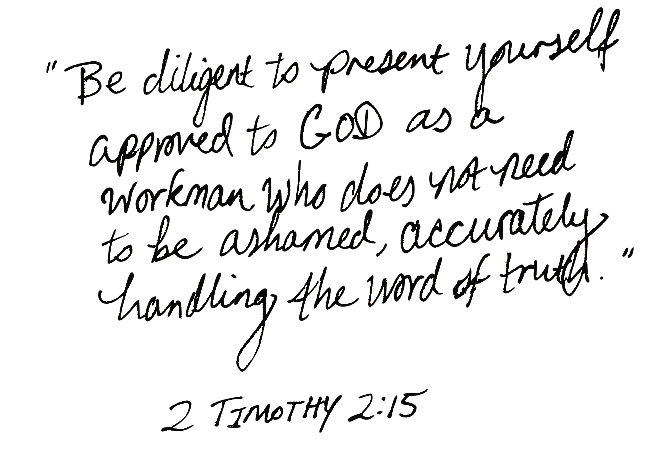
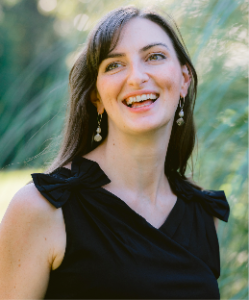

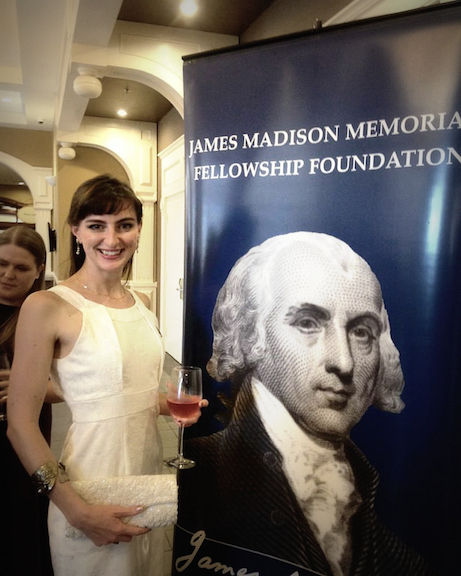
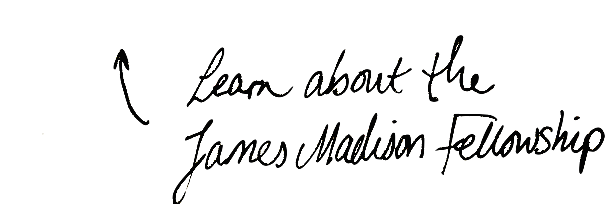


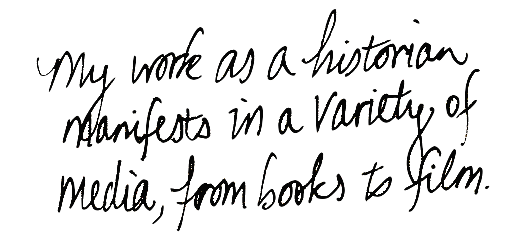
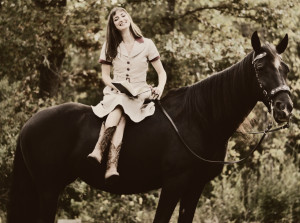
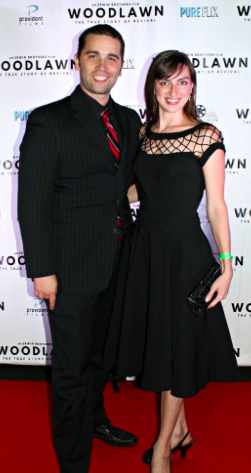


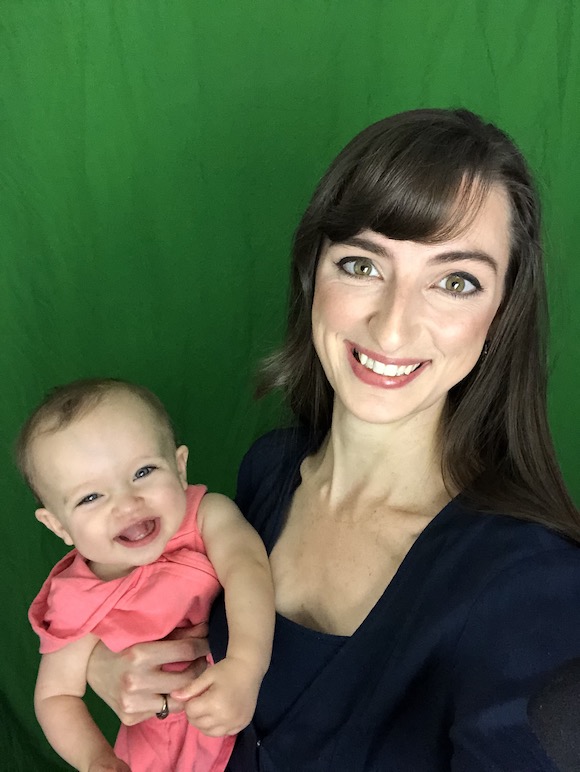

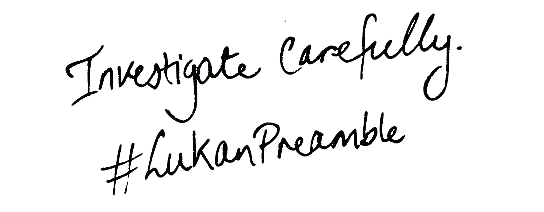
You leave out the rest of conversation, where Coons specifically mentions the establishment clause and O’Donnell mentions her ignorance of it as well. Maybe you are an average read after all. Leaving out vital information is nothing new.
Intelligent Design is hardly specific enough, as you describe it, to be taught in any classroom. Do we trot out every possible intelligent designer from Jehovah to aliens? Not to mention Kitzmiller v. Dover has shown Intelligent Design to be religious rhetoric. Oh, and let’s not forget its mentioning in the infamous “wedge document” from the Discovery Institute.
To give intelligent design time in public, government schools is to display a preference to a religion: a clear violation of the establishment clause. Do you honestly think an unspoken state religion is any better than one officially announced?
Oh, and your Islam article is typical WND garbage: the book was about Middle Eastern history. Yeah, Islam tends to be a tad important there. I learned about the five pillars in Middle School alongside the ten commandments when appropriate in class. It’s learning about history and cultural, Amanda, not church. Nobody is arguing the cultural and historical significance of religion.
Azou, Intelligent Design can most certainly be taught alongside Darwinism/Evolution. A teacher can put two sentences in there or just mention that some scientists believe there is evidence for intelligent design based on everything from order in the universe and on earth, to the cell structure and DNA. That is not a religious doctrine any more than Darwinism is and I am tired of hearing anti-ID bigots claiming that it is. I don’t care what some idiot lawyer claims in the Kitzmer v. Dover case. Plenty of bad lawyers and judges have made cases only by confusing people, which is not hard to do. The USA has no state religion and studying Intelligent Design or science in light of the possibility of a Creator does not a religion make. That is such nonsense and you know it. Everybody knows that. You are free to believe what you want to believe in this country and that is why we are free. When you start telling me that I am not allowed to study science and history in light of a Creator in school- that is you being bigotted and prejudiced against academic freedom, and it is being imposed by people who simply do not want people to think about it.
What Islam article are you referring to? What do you mean that Amanda is promoting learning about church in school? All Amanda does is promote learning about history and culture and science. She is about studying and looking for the truth and learning what is right and what is wrong. She ain’t preaching anything.
You are allowed to study ID. Go forth and study, ye student of ID!
Oh, but not in government schools, because the courts have deemed ID to be religious. You can whine about bad lawyers and judges until you’re blue in the face: the matter is settled. Deal with it or start preparing for your court case.
You did absolutely nothing to refute my conclusions on ID. You even capitalize “creator” for crying out loud! What do you think you’re trying to pull here?
curious wrote: “I don’t care what some idiot lawyer claims in the Kitzmer v. Dover case.”
How about what the judge said? And ruled?
ID is religious doctrine, and therefore it is unconstitutional to teach in public schools. If you have a problem with the ruling, please explain.
btw, it’s “Kitzmiller vs. Dover”, FYI.
Avoir une tres bonne concentration est obligatoire selon les metiers http://gagnerconcentration.overblog.com/gagner-de-la-concentration
Avoir un tres bon enrichissement personnel est primordiale selon les metiers http://enrichissement-personnel.overblog.com/l-enrichissement-personnel
Bonne journee a tous
Human rights in Islam-
http://www.islamhouse.com/p/50116
http://www.scribd.com/doc/12290333/Sacred-Freedom